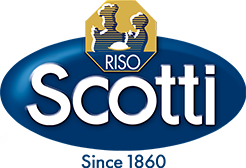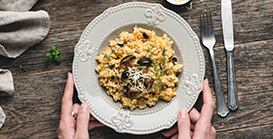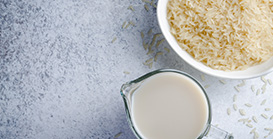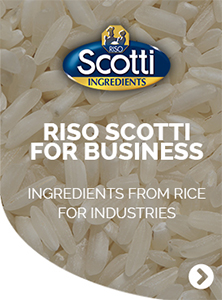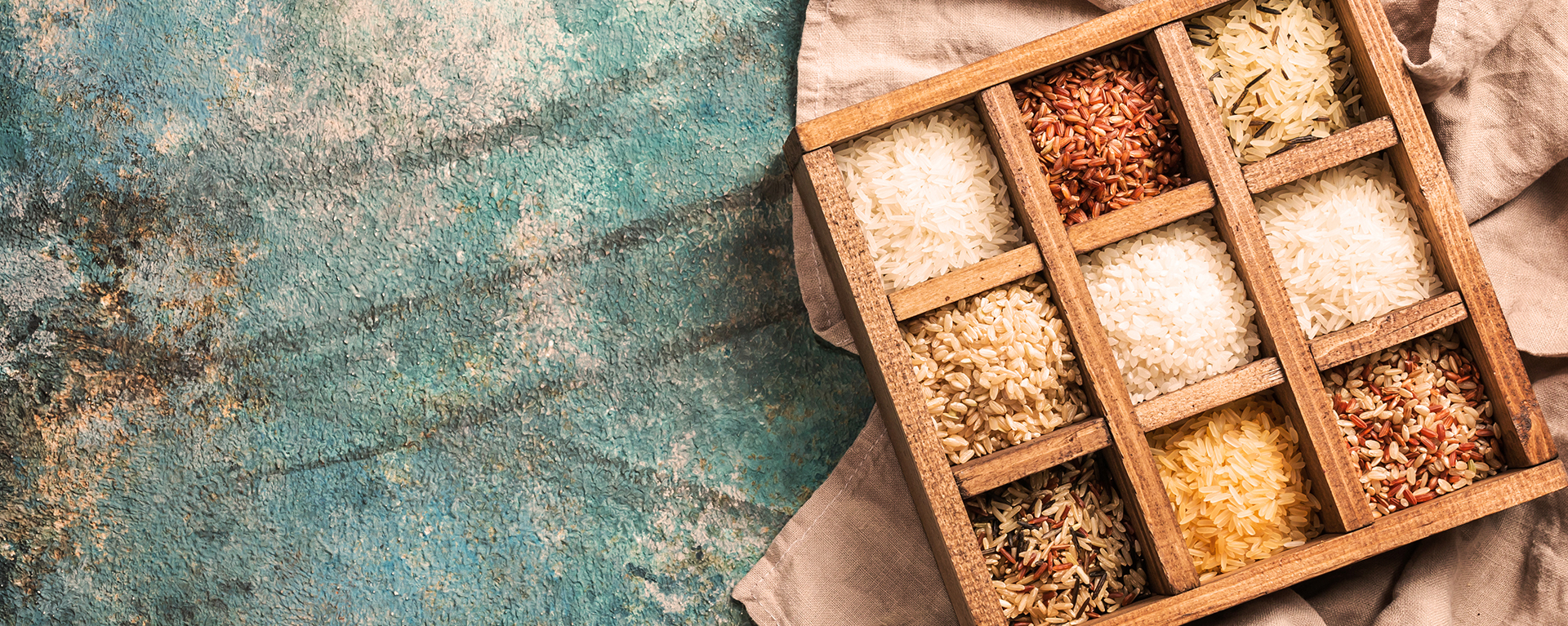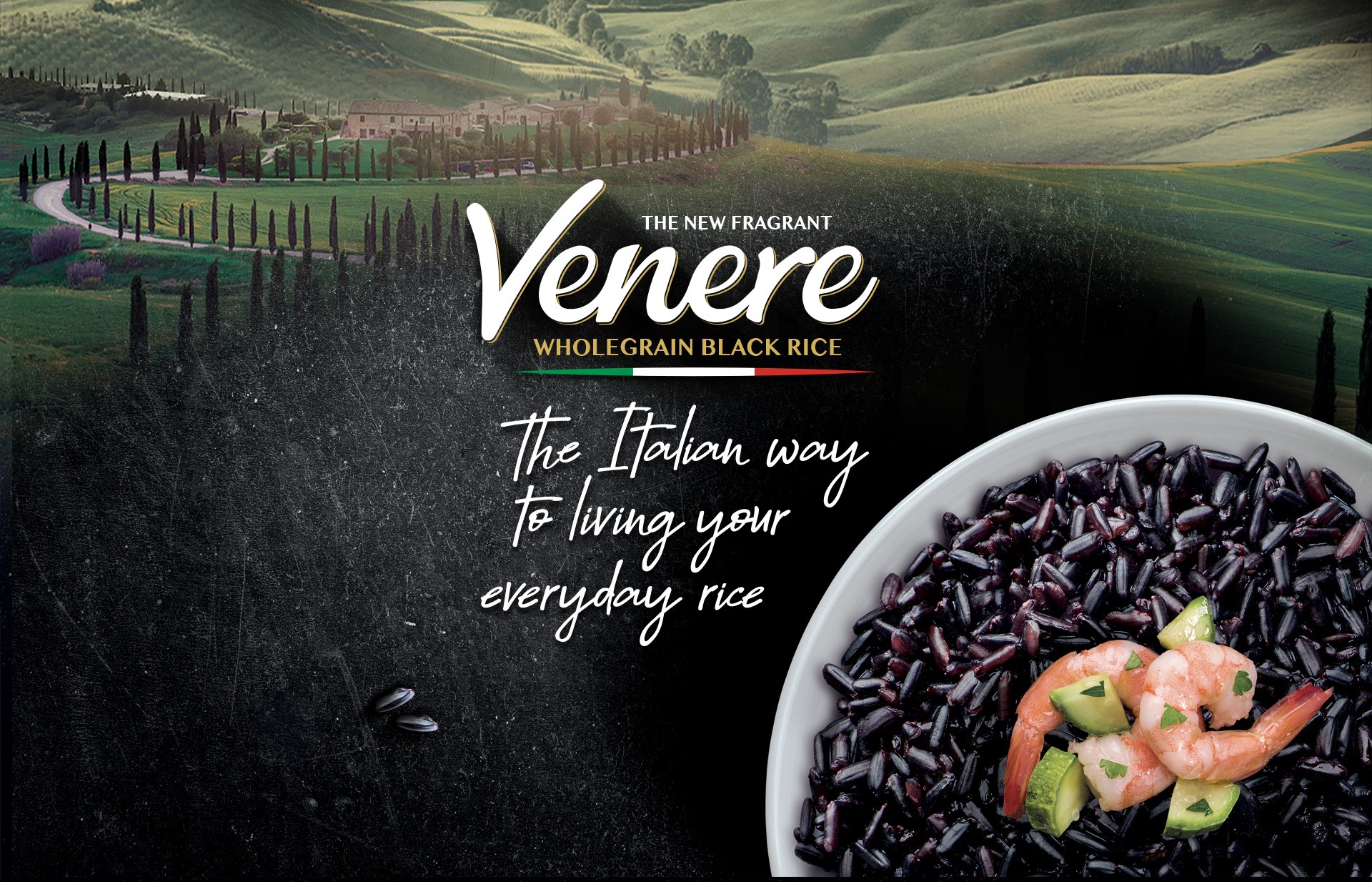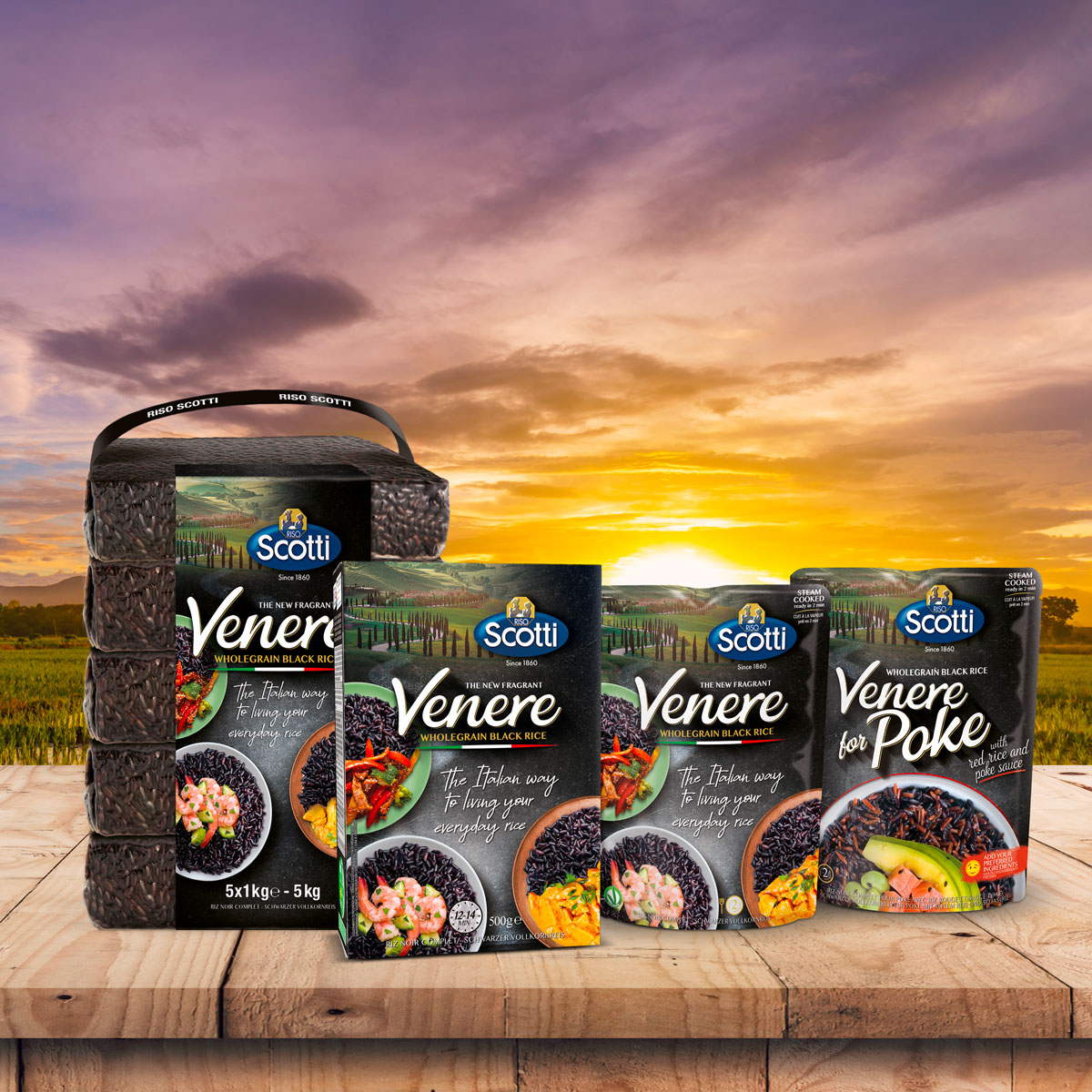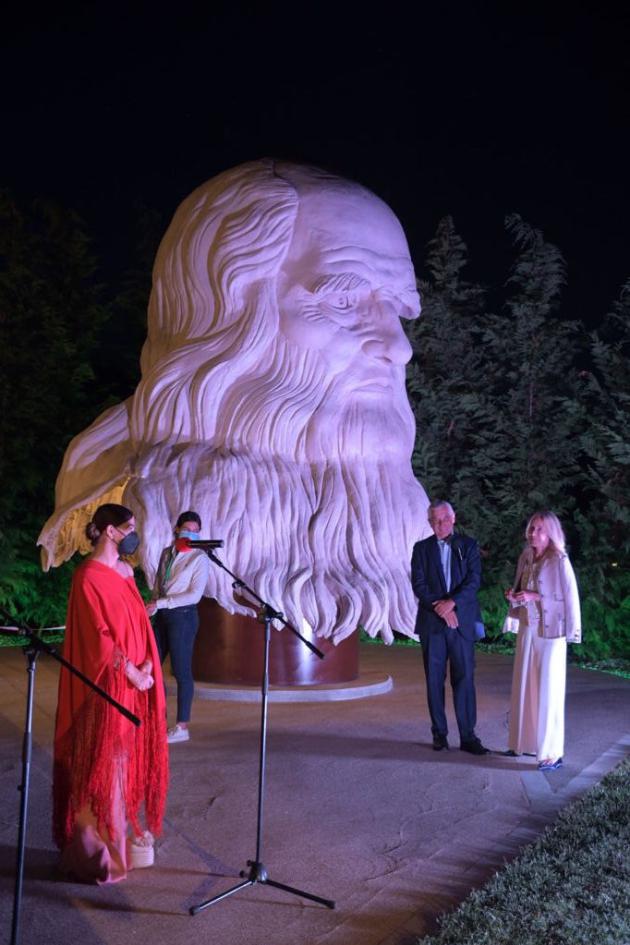INGREDIENTS FOR 6-8 SERVINGS:
500 g diced beef
400 g peeled and chopped carrots
2 peeled and chopped big onions
100 ml seed oil
2 heads of garlic
600 ml water
150 g dried chickpeas (soaked in water for 8 hours)
100 g raisins
450 g Riso Scotti Jasmin rice
1 tablespoon of powdered coriander
2 tablespoons of curcuma
1 tablespoon of cumin seeds
salt
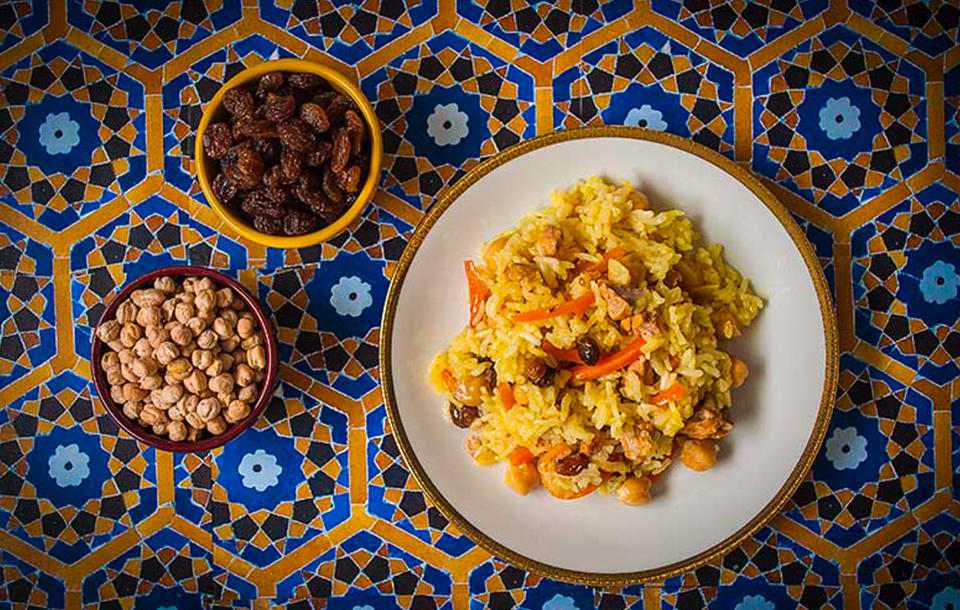
PROCEDURE:
Put the raisins in a bowl and cover them with lukewarm water. Wash the rice until water is clear. Drain it and keep it back. Heat the oil in a pan (a wok would be better); drop the meat and brown it; add the onions and cook until they are brown; add the carrots and keep on cooking for 5 minutes. From now on, the ingredients have not to be stirred, but added layer by layer. Pour 600 ml of water and the soaked chickpeas. Bring the water to the boil, lower the flame and add the heads of garlic, removing only the external peel, without separating the cloves; cook for 50 minutes with the lid on. Add the raisins and keep on cooking for further 10 minutes; add curcuma, cumin, coriander, and salt. Cook on a slow heat for 10 minutes. Remove the heads of garlic, add the rice, and cover it with water. Bring it to the boil. Lower the flame to the minimum and cook until the rice is cooked (about 5 minutes). Before serving, stir the rice gently.

Uzbek cooking is more similar to the one of Turkey, Middle East, China and other Muslim Countries than the Russian one. The reason is that Uzbekistan is a Muslim Country, therefore pork is almost lacking in traditional dishes. Unlike their nomadic neighbours, Uzbeks have been a resident people for centuries. Among deserts and mountains, in the oasis and fertile valleys, Uzbeks cultivated wheat and bred tame animals. The consequent abundance of products allowed this people to express its strong hospitality tradition, that contributed to enrich their cooking. The round bread, called lepyoshka, and rice are the bases of Uzbek cooking. In the markets, a wide selection of melons, fruits, vegetables, dried fruits, and nuts can be found. The best Uzbek food is served in private houses and includes simple and unpretentious dishes. Seasons, most of all winter and summer, affect a lot the composition of dishes. In summer, fruits, vegetables, and nuts are omnipresent. Winter diet is traditionally made of dried or preserved fruits and vegetables.
A legend is bound to the origin of Plov: they say that a prince felt in love with a beautiful girl who belonged to a poor and humble family. Since he couldn’t marry her, the prince began to refuse food; in order to try and cure him, the king invited a great doctor who suggested to give the prince a caloric dish: the “Palov Osh”. This explains the presence of this dish in Uzbek weddings. The pilaf rice for weddings is always prepared by men, since the Uzbek tradition provides a great feast with at least 500-1000 people and several kilos of rice are used to prepare this dish.





